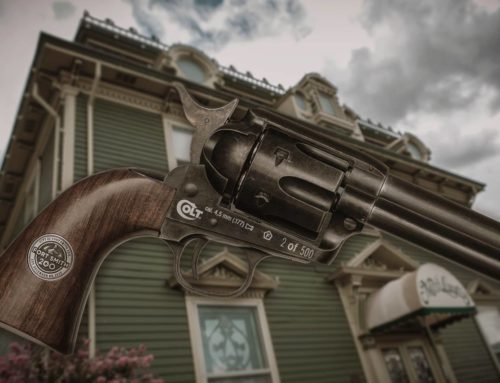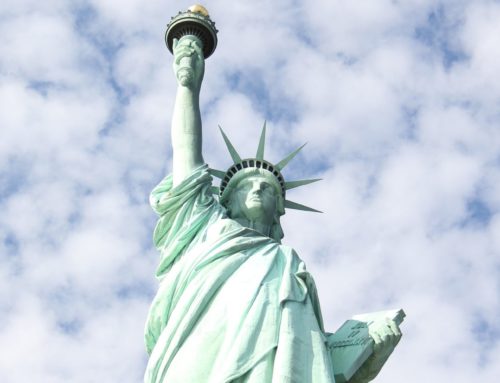In many drug possession or DWI/DUI cases here in Fayetteville and Fort Smith I often ask myself “was the stop lawful?”. If the stop is determined to be unlawful, then any evidence (drugs, admissions, field sobriety tests, etc) are not allowed into consideration. This year, I’ve had quite a few cases with interesting stops and I thought I would share one with you today.
1. Issue: A client got pulled over because he did not have a rear view mirror.
Result: I got this case dropped by the prosecutor because the prosecutor did not believe the officer had a right to pull over the driver. This has never been ruled on in a court of record in Arkansas, but many judges and prosecutors in district court agree that the statute only says you have to have one rear facing mirror on your car and the entire Arkansas code does not make reference to side-view mirrors, which are technically rear facing mirrors under the statute.
The relevant statute is A.C.A. § 27-37-305, Mirrors and reflectors (only relevant sections included)
(a) Every motor vehicle shall be equipped with a rearview mirror.
(b) Every motor vehicle which is so constructed or loaded as to obstruct the driver’s view to the rear thereof from the driver’s position shall be equipped with a mirror located so as to reflect to the driver a view of the highway for a distance of at least two hundred feet (200′) to the rear of the vehicle.
There are, however, supporting federal cases from a couple of different jurisdictions, one of which I have included below for those interested in that kind of thing.
Leslie v. State, 108 So.3d 722 (Fla. App. 5th Dist. 2013) (included below)
United States v. Chanthasouxat, 342 F.3d 1271 (11th Cir. 2003)
108 So.3d 722
District Court of Appeal of Florida,
Fifth District.
Damian Eugene LESLIE, Appellant,
v.
STATE of Florida, Appellee.
No. 5D12–1303. | March 1, 2013.
Synopsis
Background: Defendant was convicted in the Circuit Court, Orange County, C. Jeffery Arnold, J., of possession of cocaine and possession of 20 grams or less of marijuana on a plea of nolo contendere. Defendant appealed the Circuit Court’s denial of his motion to suppress evidence.
[Holding:] The District Court of Appeal held that police officer lacked reasonable suspicion to conduct a traffic stop of defendant’s vehicle.
Reversed and remanded.
[1]
Automobiles
Equipment or inspection offenses, in general
Police officer’s mistaken belief that the absence of a center review mirror on a vehicle constituted a traffic violation did not furnish reasonable suspicion for officer to initiate traffic stop of defendant’s vehicle, which lacked center rearview mirror. U.S.C.A. Const.Amend. 4; West’s F.S.A. § 316.294.
[2]
Automobiles
Grounds
An officer’s mistake of law as to what constitutes a traffic violation cannot provide reasonable suspicion justifying a traffic stop. U.S.C.A. Const.Amend. 4.
[3]
Automobiles
Equipment in general
Florida statute requiring a vehicle to have a mirror reflecting a view of the highway for a distance of at least 200 feet to the rear of the vehicle does not require a center rearview mirror if one or more side mirrors meet its requirement. West’s F.S.A. § 316.294.
[1] Damian Eugene Leslie (defendant) appeals his judgment and sentences, arguing that the trial court erred in denying his motion to suppress contraband seized during a traffic stop. Determining that the police lacked reasonable suspicion to justify the stop, we reverse.
The defendant was charged with possession of cocaine and possession of 20 grams or less of marijuana.1 He filed a motion to suppress the contraband based on the claim that its discovery resulted from an unlawful seizure. Specifically, he argued that the police lacked reasonable suspicion to conduct a traffic stop of his vehicle. At the suppression hearing, a law enforcement officer testified that he saw the defendant’s vehicle driving toward him, and he noticed that the vehicle did not have a center rearview mirror. The officer believed that this absence of a mirror was a traffic violation and, therefore, waved down the vehicle. The defendant stopped the vehicle. When the officer went to talk to the defendant, he saw three baggies of marijuana on the defendant’s lap. This discovery ultimately led to the instant charges. The court denied the suppression *723 motion. The defendant then pled nolo contendere after reserving the right to appeal the denial of his dispositive motion to suppress.
The defendant contends that the trial court erred in denying his motion to suppress because the traffic stop was based on a mistake of law. We agree.
[2] [3] An officer’s mistake of law as to what constitutes a traffic violation cannot provide reasonable suspicion justifying a traffic stop. Hilton v. State, 961 So.2d 284, 298 (Fla.2007); State v. Wimberly, 988 So.2d 116, 119 n. 2 (Fla. 5th DCA 2008). Florida law requires a vehicle to have “a mirror so located as to reflect to the driver a view of the highway for a distance of at least 200 feet to the rear of the motor vehicle.” § 316.294, Fla. Stat. (2011). This statute does not require a center rearview mirror if one or more side mirrors meet its requirement, so here, the officer’s belief to the contrary was a mistake of law. See U.S. v. Chanthasouxat, 342 F.3d 1271 (11th Cir.2003) (holding same regarding traffic stop for lack of rearview mirror based on substantially identical Alabama statute).2
REVERSED and REMANDED.
PALMER, LAWSON and COHEN, JJ., concur.
Parallel Citations
38 Fla. L. Weekly D489
Footnotes
1
See § 893.13(6)(a)-(b), Fla. Stat. (2011).
2
The trial court agreed that the officer made a mistake of law, but nevertheless denied the motion to suppress on the basis that the absence of a center mirror could have been caused by adhesive failure, which might have suggested similar failure of adhesive holding the side mirrors (which the officer could not see from his vantage point). We reject this logic as both unsupported by any evidence at the hearing and too tenuous to support reasonable suspicion.



